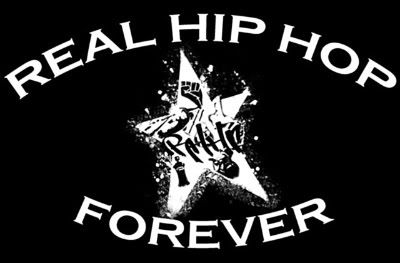Pensmoke, AKA 'The Professional Outcast', is an underground Memphis emcee and traditional golden age style artist. He perceives that his music is going against the grain of the popular 'trends' that are common in the mainstream rap world. With soulful production from Memphis beatmaker/emcee MaxPtah and 'The Derelict' of Half-Breed Productions, his new album, "Move Undetected", is unique. Pensmoke describes his cd as a "much welcome change from whats typical in the Memphis Hip Hop/ Rap scene". His songs touch on life in Memphis, being a confused mixed-blood (Native American/White) in a black and white racially segregated southern city, and going from a state of furious rage to recieving knowledge of God, as well as the state of Hip Hop music today. Pensmoke describes his style as "real Hip Hop music for real Hip Hop heads". He shares his vision, his inspiration and his insights in this recent conversation.
Q: Who is Pensmoke?
A: Pensmoke is an emcee trying to speak Truth in an age that doesn't want to hear it. And doing it in a style that is closer to traditional hip hop than today's watered down version of this once proud artform.
Q: How did you acquire the name "Pensmoke"? How does it reflect your music? A:'Pensmoke' refers to placing well thought out writing in the forefront instead of tough guy gun-talk. Pensmokemeans strong lyrics instead of the more popular subject of 'gunsmoke' that is more prevalent in todays rap music.
Q: Congratulations on your new cd! That's a great accomplishment! What does it mean for you to "Move Undetected" ?
A:Thank you very much. I am honored. Move Undetected is what I have done throughout my life...unintentionally. Moving in silence, most of the time alone, instead of screaming for attention and running with the followers in this artform of Hip Hop.
Q:Who are your greatest musical influences?
A: The Golden Age of hip hop was my biggest influence. From the '86 to '95 time frame, I enjoyed Emcees like Big Daddy Kane, KRS1, Rakim, and many others. Later on, I got familiar with groups like Tunnel Rats, LPG, Cross Movement, and so on. These days I mostly listen to lots of underground brothers like Sev Statik, Supaman, Mikeless, Redcloud, and too many more to name really.
Q:How did you come to hip-hop and become a musician?
A: I started out in '88 trying to learn to DJ on a ragged turntable I had. I found hip hop music around 1987 and was hooked ever since. I like to get things off my chest so writing and emceeing was more of what I needed to do as opposed to DJing. It just clicked naturally.
Q:Describe your distinctive style of music.
A:Traditional, underground, golden age style hip hop with the Truth embedded.
Q: What are your dreams for your music?
A:I just want people to enjoy it and get the message that is relayed in it. Its up to God what direction He wants it to go in. I will try to be ready for whatever direction that is.
Q:Why do you think so many Native people gravitate toward hip-hop? What does it mean to us?
A:Well, Native people and people in the hip hop community, who were at first mainly African American and Puerto Rican in New York, have had similar struggles. Very different in some ways but very similar in others. We are creative people, and hip hop is a very good outlet for creativity to be expressed. Some of the best emcees out there today are Native, might I add. Maybe I am a little biased though. lol Anyone who hasn't heard music from Redcloud or Supaman, for example, is seriously missing out on some pure hip hop.
Q:What is the difference between rap and hip-hop?
A:Hip hop is a culture. Hip hop is a culture that consists of emcees, DJs, B-Boys, and graffiti artists. Those are the basic elements of the hip hop lifestyle. 'Rapping' is another word for Emceeing, rhyming over beats. These days a 'rapper' is some one who tries to emcee but often knows nothing about real hip hop culture and usually doesn't care about it. 'Rappers' are usually willing to rap about anything because their motivation is money and not the arform. Emcees are representative of real hip hop and will rap in an expressive and/or intelligent or uplifting way.
Q:What obstacles or challenges have you faced and overcome in life and in your music?
A: In life, I came from a place where drugs and trouble were tempting me at every corner it seemed like at times. Instead of giving in, for the most part I escaped into the music until I got older and came to know the forgiveness of God.
Q: How did you overcome these issues?
A:Honestly it wasn't me that overcame the issues. It had to have been God's help because I wasn't making the best decisions in life and I am fortunate to be here and have the life that I now have.
Q:What have you learned from them?
A:I have learned that the easy way is usually the wrong way to go.
Q: What advice could you share with your listeners?
A:Don't follow trends and get involved with what's popular because its usually shallow and wont last. Get involved with something meaningful that will help your people and uplift God and you will be rewarded.
Q:What message do you hope they gather from your music?
A:God really does forgive even the foulest people if they want forgiveness and want to do something that will uplift Him and help others.
Dr. Honey Dawn Karima Pettigrew, Ph.D. is the author of two novels, THE WAY WE MAKE SENSE and THE MARRIAGE OF SAINTS. Her first cd, THE WORSHIP OF ANGELS, was a Nammy nominee.










 night and have a great weekend.
night and have a great weekend.